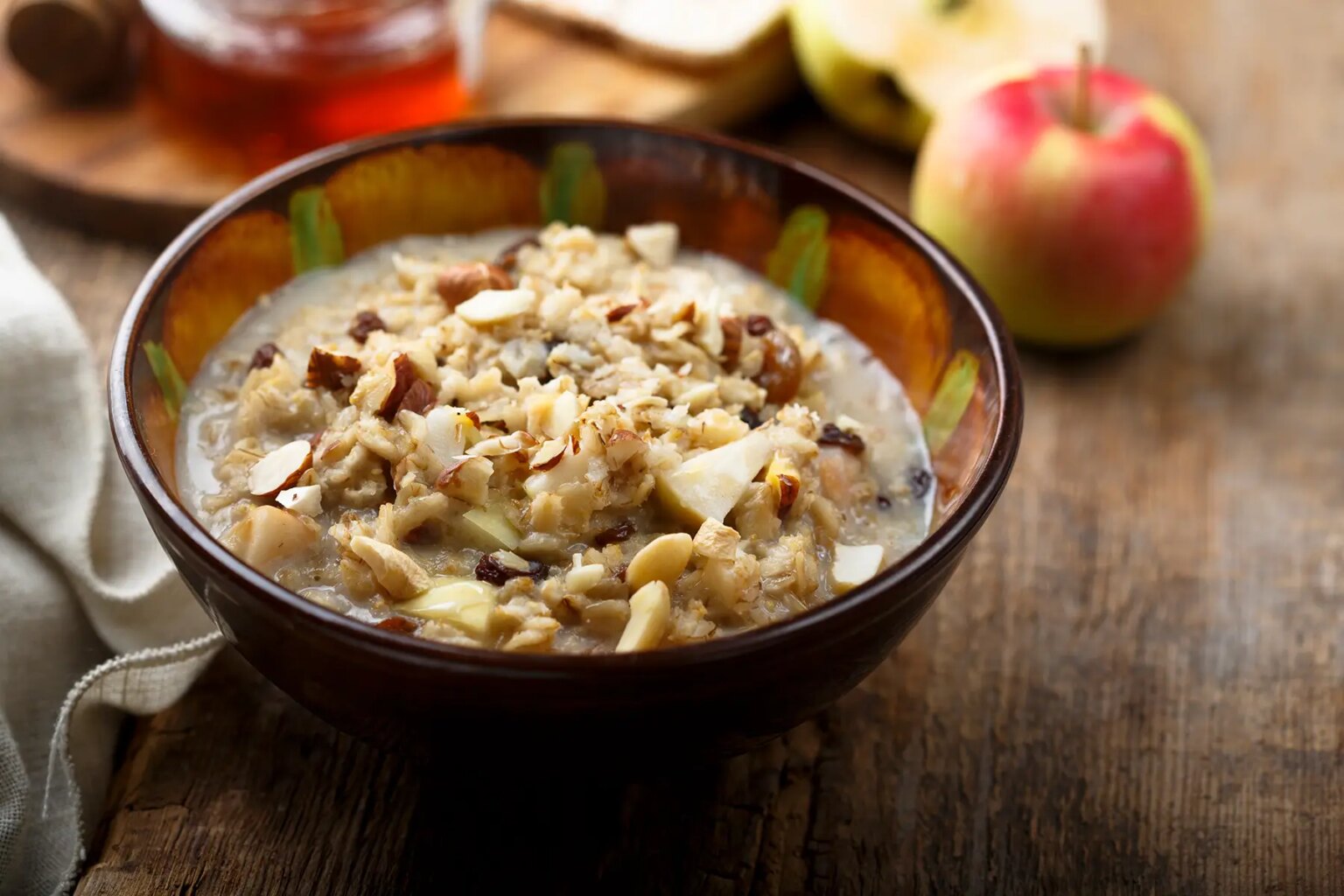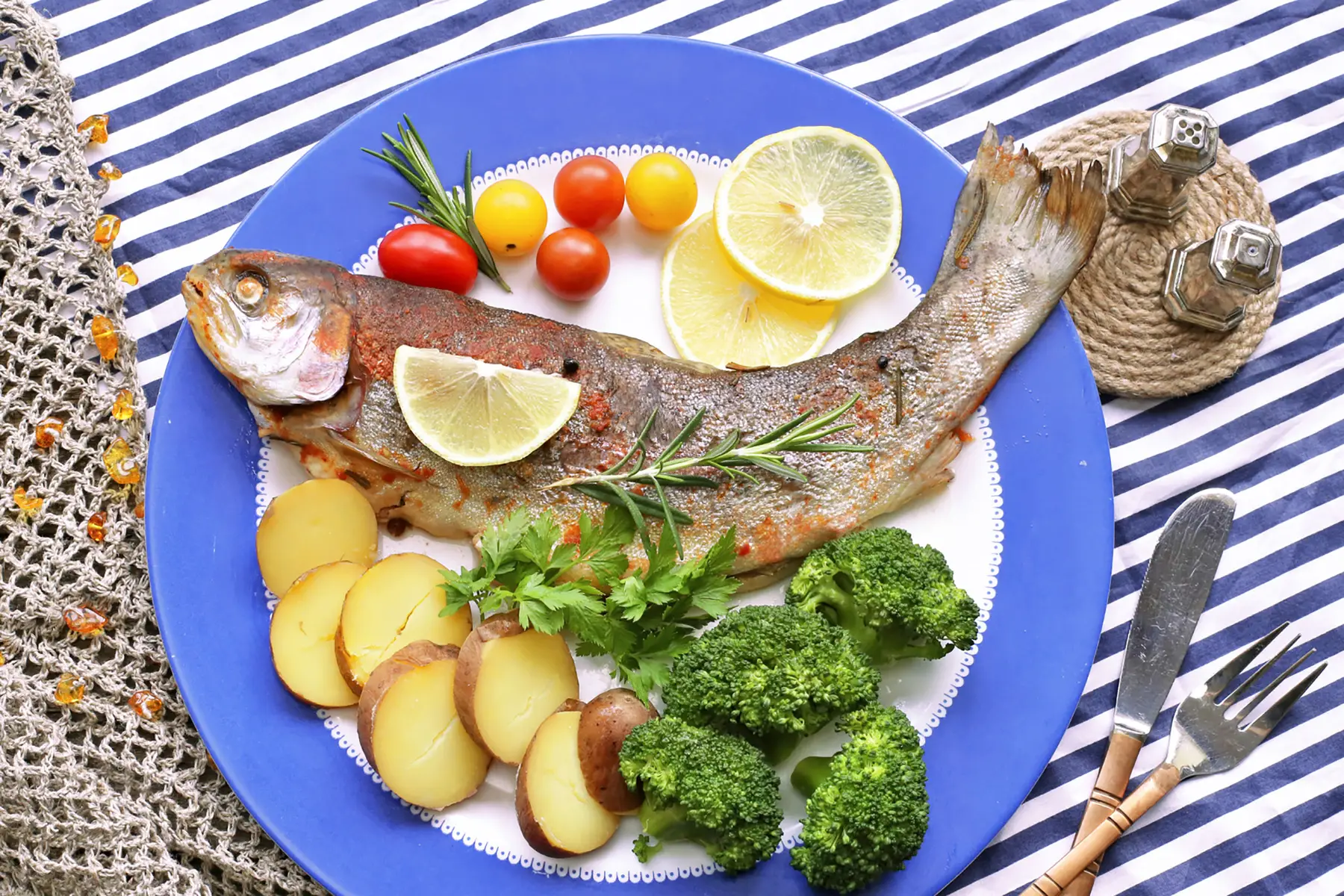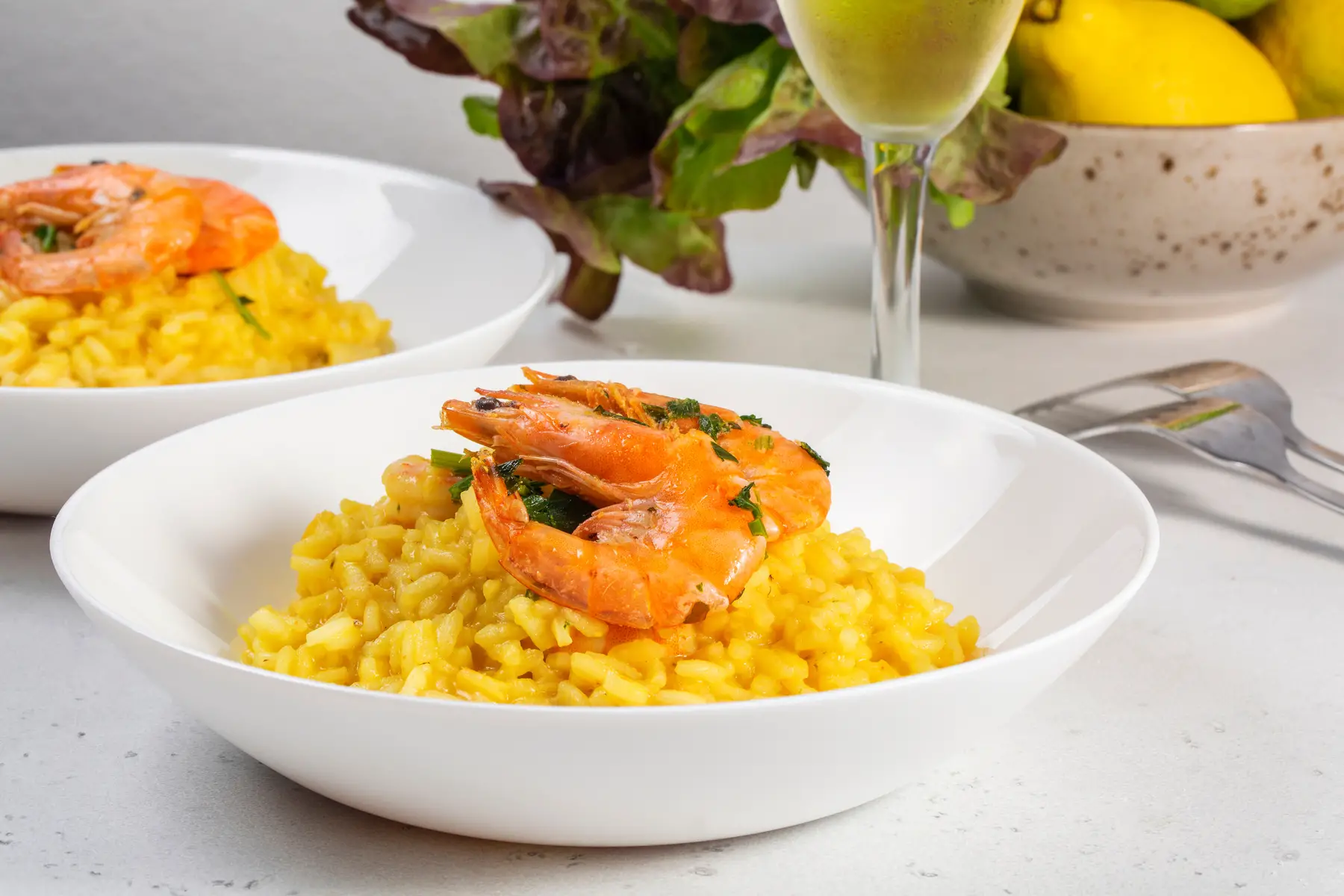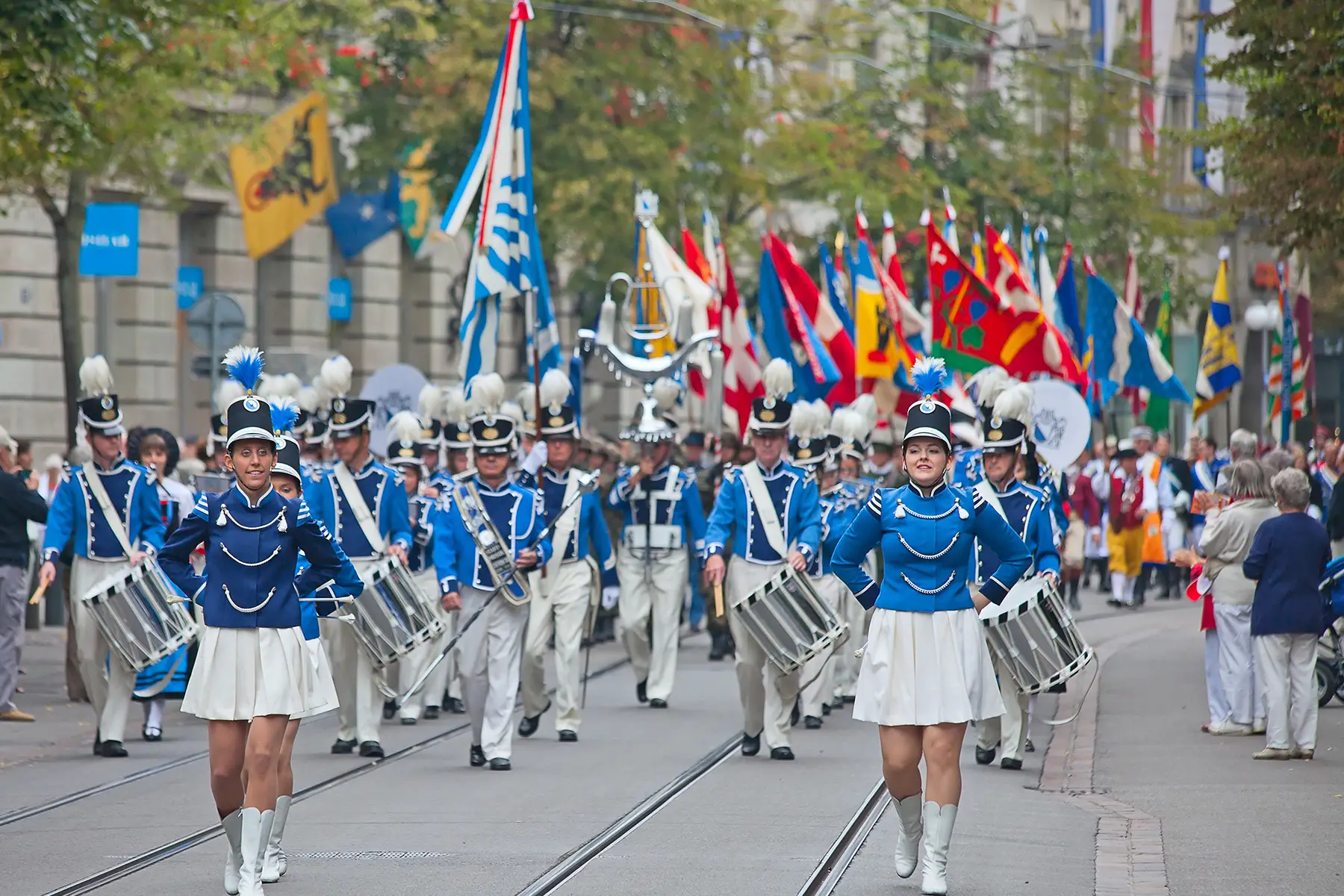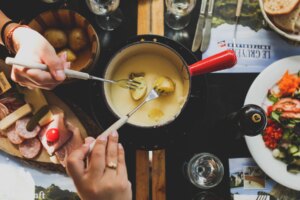There are few things that define a country’s culture better than its traditions and customs around eating. And like all social etiquette in Switzerland, the Swiss diet revolves around a fairly rigid schedule. There are five daily meals in Switzerland – Zmorge, Znüni, Zmittag, Zvieri, and Znacht. These set times also determine the types of dishes that Swiss people tend to enjoy. Not only that, but they also come with their own set of rules and conduct.
To give you an idea of what’s in store, this guide provides an overview of the different mealtimes in Switzerland, along with tips on how to integrate the Swiss diet into your daily life.
Orsolya Szathmári
Orsolya Szathmári is a health optimization expert in the field of Holistic Healthcare located in Switzerland. She offers online and in-person nutrition programs ranging from six weeks to six months, individually tailored to help improve your general health and lifestyle. Orsolya is a certified naturopath and nutritionist and offers expertise in the area of nutritional therapy, bioresonance, and energy medicine.
Breakfast – Zmorge
Zmorge is the Swiss-German word for breakfast. It is an abbreviated form of the two words ‘zu’ (to, at) and ‘morgen’ (morning) and literally means ‘in the morning’. This obviously makes sense, given that breakfast is eaten in the early hours of the day. During the week, many Swiss people usually have their Zmorge between 6:30 and 7:30, depending on when school starts or what time they have to catch their train to work. They tend to eat simpler and faster breakfasts because there is no time to indulge.

Come the weekend, however, it’s a very different story. This is when Swiss people like to indulge in a longer, more leisurely breakfast, which usually begins a bit later, around 9:00. Sunday brunch is also a big deal, so much so, in fact, that there is even a Swiss-German term to describe the manner in which they eat their ‘weekend Zmorge‘ – ‘zmörgele‘. This means to eat breakfast in a leisurely fashion.
Here are some of the typical Swiss foods that you can expect to enjoy during Zmorge during weekdays and weekends in Switzerland.
Midweek Zmorge
A typical midweek Zmorge looks very similar to breakfast in many other countries throughout the world. It usually includes one of the following:
- a slice(s) of bread or rolls with butter and jam, coffee, tea, or hot milk
- a bowl of cereal with milk, coffee, or tea
- a bowl of Müesli with fruit and yogurt, coffee, or tea
- Gipfeli (a Swiss croissant) and coffee
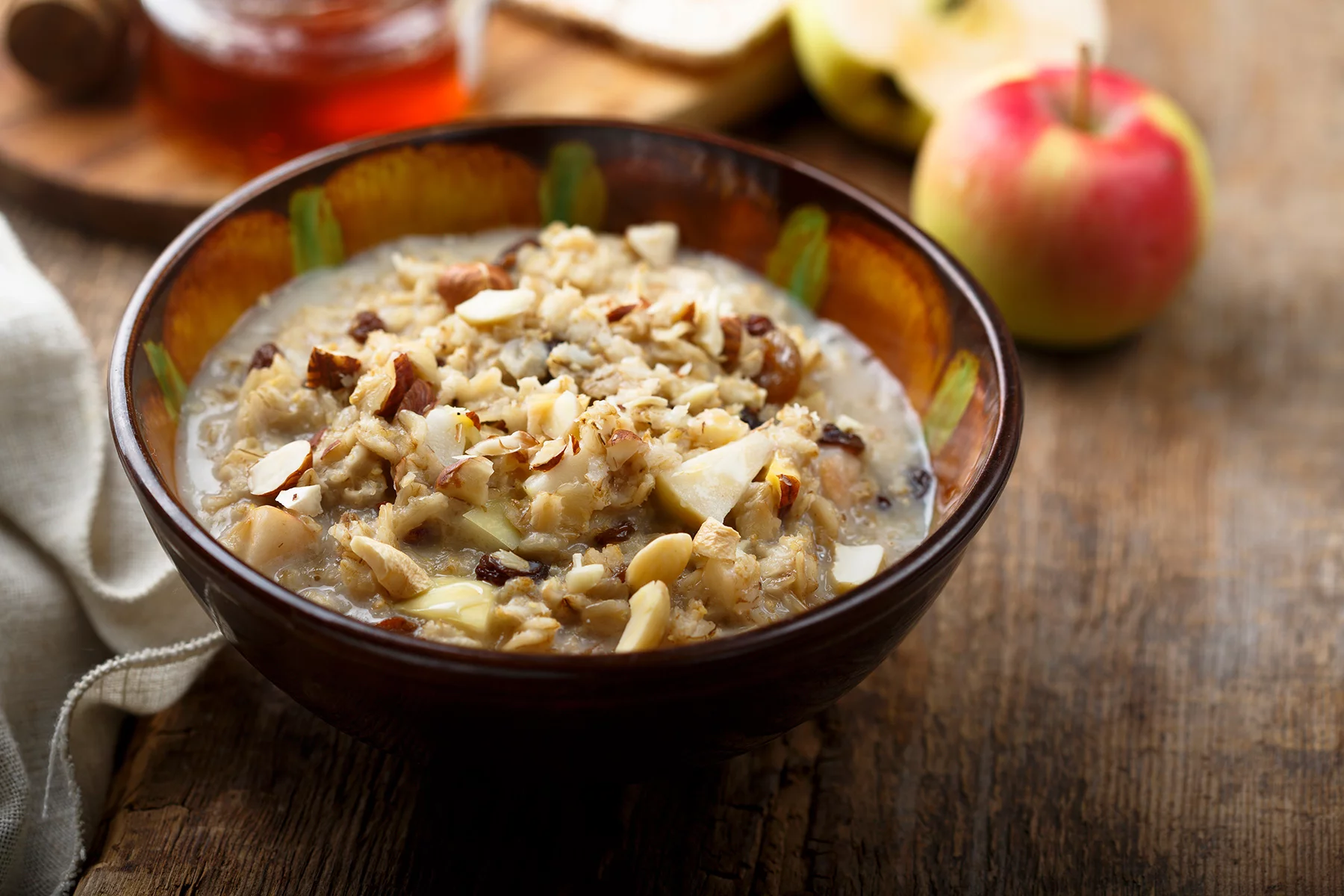
The Swiss diet is actually considered to be one of the healthiest in the world. In fact, the country ranks as one of the top five healthiest populations in Bloomberg’s Global Health Index for 2020. This is based on factors that include malnutrition, obesity, and access to clean drinking water. This is largely thanks to an abundance of fresh fruit throughout the country as well as dishes like Bircher muesli, which was invented by the Swiss doctor and nutritionist Maximilian Bircher-Benner.
That said, this list is not conclusive, and like anywhere in the world, what a person typically eats for breakfast partly depends on whether they are a morning person or not. In fact, many of them leave the house in the morning without eating any anything.
Weekend Zmorge
As mentioned, the breakfast situation changes on weekends, especially on Sundays when Swiss people like to enjoy leisurely brunches. Indeed, this day is reserved for extensive and rich Zmorge and there is one ingredient that should never be missing on the breakfast table – Zopf. This is a tasty, braided bread that people only prepare (or buy) on weekends.
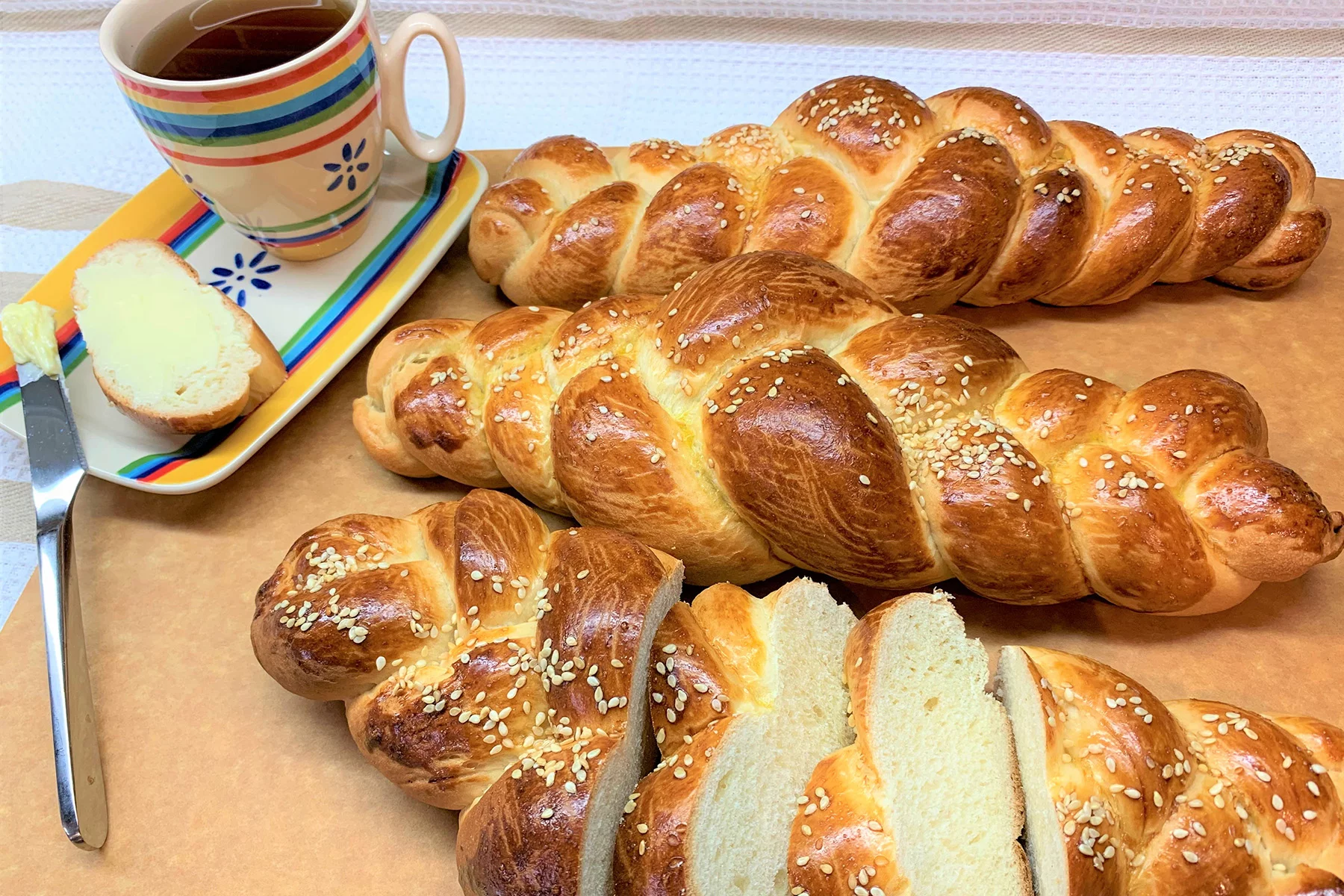
Other typical Swiss dishes to include in your weekend Zmorge include the following:
- eggs (fried, scrambled, hardboiled)
- fried bacon
- Rösti (a potato pancake)
- different kinds of jam
- honey
- butter
- a selection of cheeses
- a selection of cold cuts
- juice
- coffee or tea
The ‘at nine’ meal – Znüni
The Swiss-German word Znüni is a short form of the German ‘zu neun’, which literally means ‘at nine’. It refers to a meal or snack that is eaten at or around 9:00. A non-literal translation for Znüni would be mid-morning snack. Znüni is a custom all over Switzerland that exists in schools, companies, and homes. Some companies even encourage their employees to take a mid-morning break and enjoy a conversation and a cup of coffee with their colleagues. It supposedly improves productivity.

Znüni usually contains fruit, rolls, or croissants and is accompanied by hot coffee, tea, or juice. A typical Znüni that children might enjoy at school, for instance, would be an apple. Some schools in Switzerland even provide Znüni apples for all the children. That said, there are no strict rules when it comes to what to eat or drink during your Znüni break – it all depends on personal preference.
The word Znüni is used in combination with other words such as these:
- Znünibrot – Znüni bread
- Znüniwägel – Znüni food truck
- Znünipause – Znüni break
- Znüniöpfel – Znüni apple
The ‘noon’ meal – Zmittag
Zmittag is the Swiss-German word for lunch and is a short form of ‘zu Mittag’, which means ‘at noon’. As the term suggests, this is eaten at midday in Switzerland. In fact, the time between 12:00 and 13:00 is generally dedicated to rest and relaxation in Switzerland. Therefore, any kind of loud noise is not allowed during this time. Lawn mowing and drilling holes in the wall are frowned upon. Some people even consider it rude to call someone on the phone during this hour, even if mobile phones have changed this quite a bit.
Lunch in Switzerland is usually a hot meal, however, these have become very international. For instance, the Swiss like to eat Italian, Thai, Chinese, vegetarian, and pretty much everything you can think of.
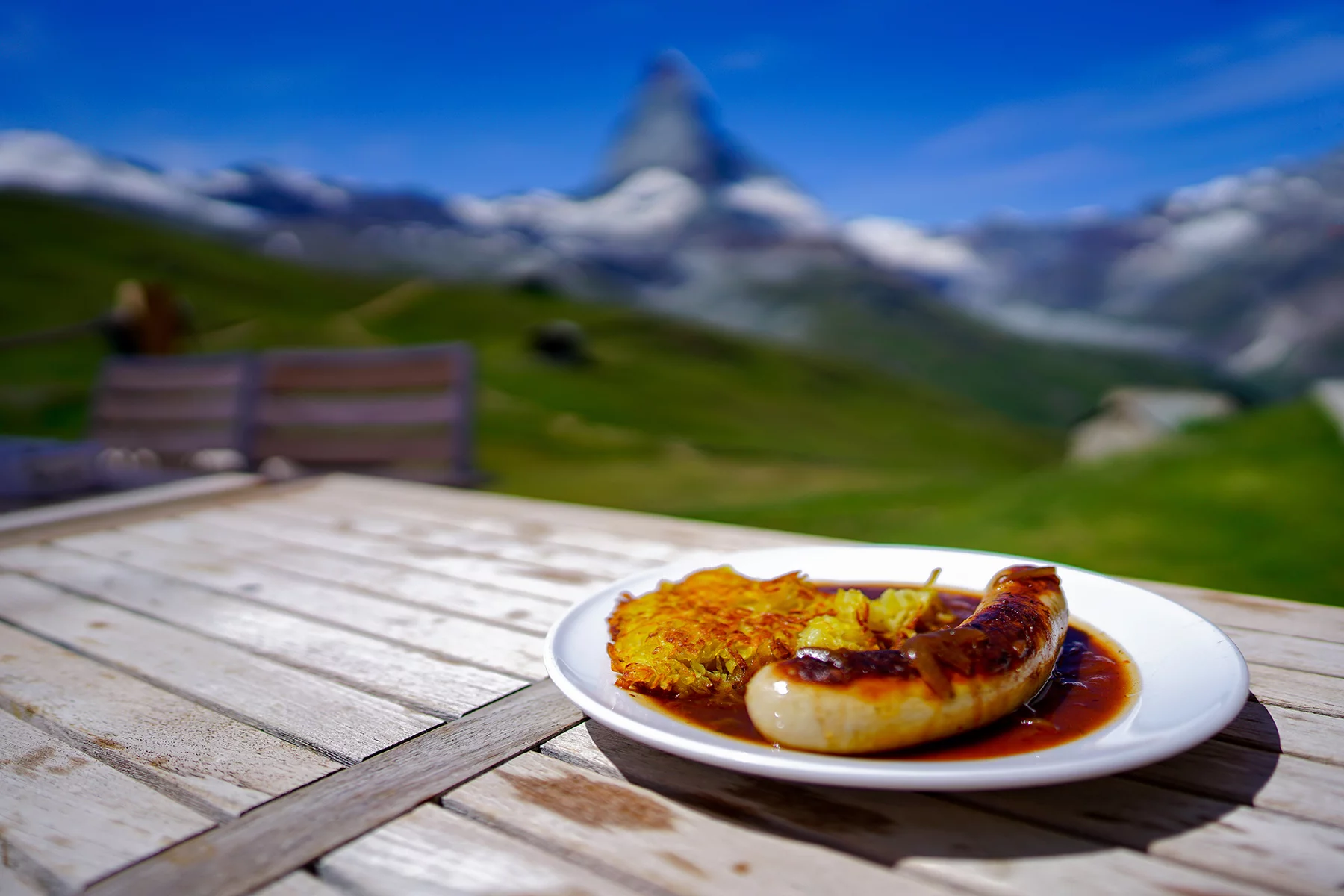
While there are some traditional dishes such as Züri Gschnätzlets (Zurich-style ragout of veal) and Basler Mehlsuppe (flour soup from Basel) that are great for Zmittag, Swiss people only eat these once in a while.
The ‘at four’ meal – Zvieri
Zvieri literally translates to ‘at four’ and refers to a small meal that is eaten around 16:00. The unofficial time ranges between 15:00 and 17:00, and if a meal is eaten before 14:00 or after 18:00, it is considered to be lunch or dinner, respectively. Much like Znüni, Zvieri is more a snack than an actual full meal and usually consists of cold foods such as fruits, a small sandwich, or a pastry.
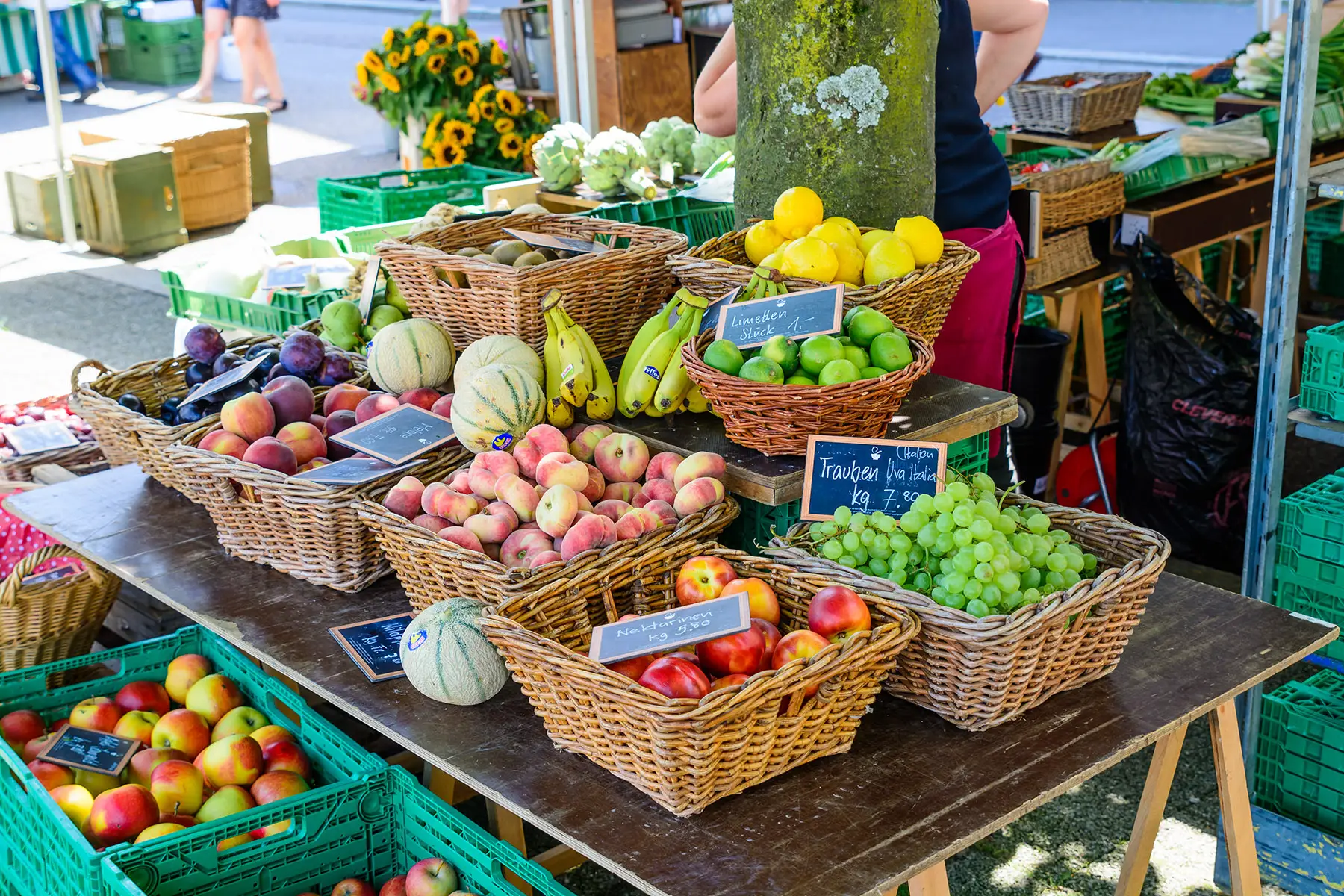
In the summertime, ice cream and fruits such as grapes, strawberries, cherries, and apricots are popular Zvieri treats. And if the weather is hot, then people tend to skip coffee and opt for a cold drink like juice or soda instead.
During the colder months, on the other hand, a hot beverage like tea or coffee is a must for every Zvieri break. This is usually accompanied by a winter snack such as mandarins, peanuts, or a cookie.
The night meal – Znacht
Znacht comes from the German term ‘zu Nacht’, which basically means ‘at night’. During the colder winter nights, Swiss people typically enjoy dinner at the beginning of the evening from 18:00 to 19:00. During the long days of summer, however, they tend to eat it on the balcony or patio to enjoy the warmth and light of the evening.
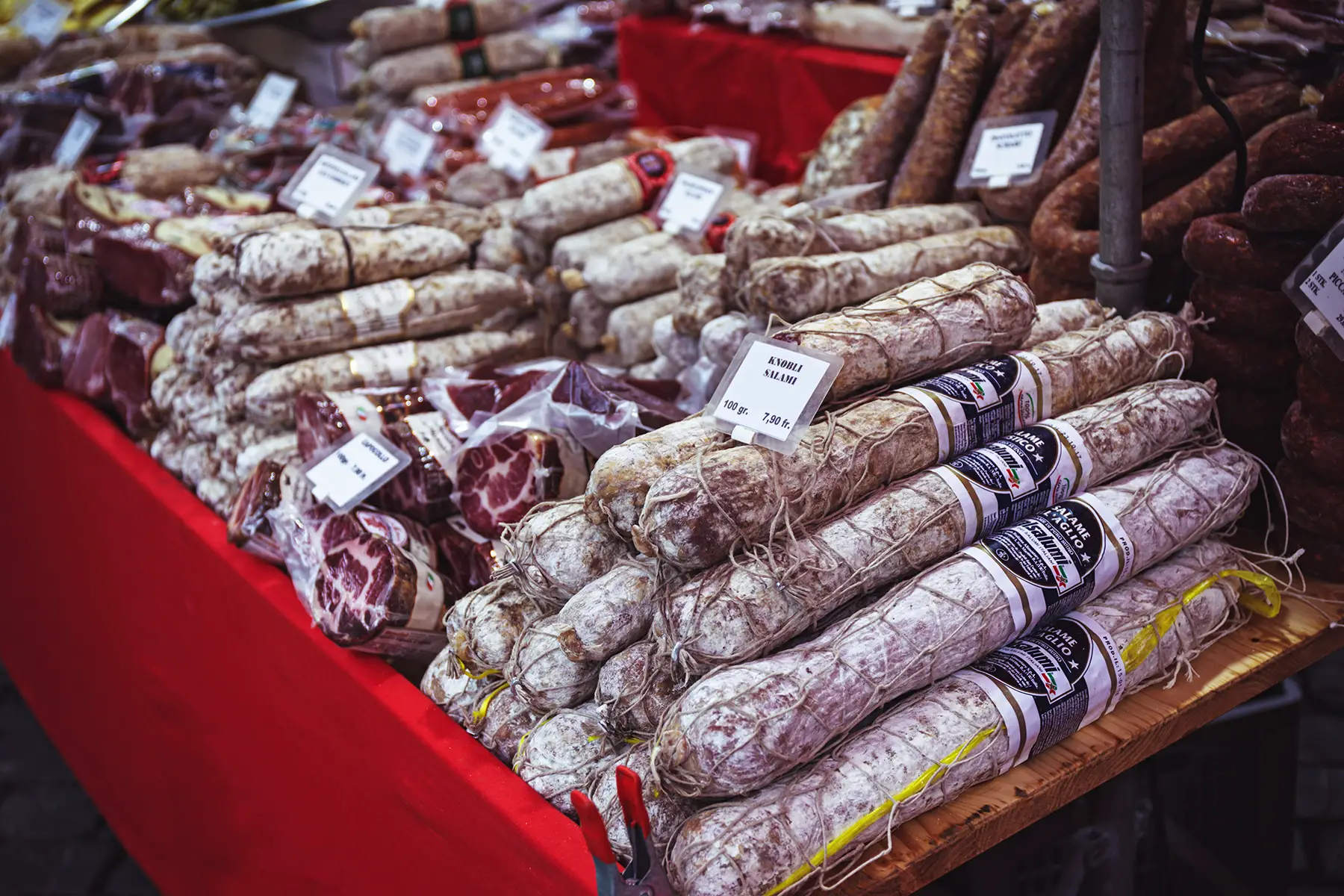
Unlike lunch, which is usually a warm meal, dinner in Switzerland traditionally consists of cold foods. Typical Swiss foods eaten during dinner are sometimes called ‘Café complet’, and include the following:
- Swiss bread (usually a whole loaf that is cut at the table)
- butter
- a variety of cheeses
- a variety of cold cuts
- different jams
- honey
- a hot drink (coffee or tea)
Of course, you can add any ingredient you like to your Znacht. Many people in Switzerland also warm up their leftovers from lunch, fry an egg, or prepare hot soup, especially on cold winter days.
